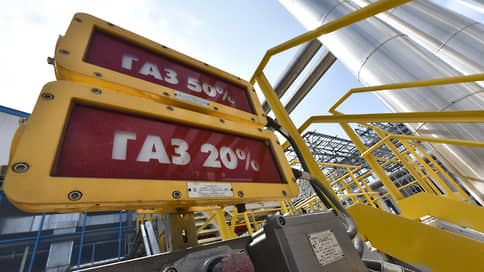NOVATEK raised the issue of abolishing the gas export monopoly
[ad_1]

NOVATEK uses Gazprom’s problems with shipments of the Cryogas-Vysotsk LNG project to Europe to once again raise the issue of abolishing the gas export monopoly. The head of NOVATEK, Leonid Mikhelson, said that LNG exports should be allowed, even if the gas is supplied from the Gazprom transport system, which is now prohibited. This is important for NOVATEK’s new large-scale Murmansk LNG project. According to Kommersant, Gazprom’s problems with shipments are caused by a lawsuit by the German Uniper, as a result of which the accounts of Gazprom Export in Luxembourg were arrested. It is because of this that the Finnish Gasum in April could stop picking up its cargo from Cryogas-Vysotsk.
The head of NOVATEK, Leonid Mikhelson, proposed changing the law on the export of natural gas in order to stimulate the production of LNG in Russia. “Now the export of gas in Russia is allowed to companies that own a field, in the license of which it is written that the produced gas will be used for LNG production. Now it will be necessary to separate the productions themselves from the fields,” Mr. Mikhelson said at the site of the Center for the Construction of Large-Tonnage Offshore Structures on June 5 in Belokamenka, Murmansk. Gazprom did not comment on Leonid Mikhelson’s idea.
Only Gazprom, as well as state-owned companies implementing projects to liquefy natural gas from offshore fields or under the PSA, have the right to export LNG in Russia. NOVATEK can only export LNG from fields where the production license provides for such a right; in practice, these are participants in Yamal and Gydyn that are not connected to the unified gas supply system (UGSS) of Gazprom.
As an example, Leonid Mikhelson cited the Cryogas-Vysotsk project (a joint venture between NOVATEK and Gazprombank) in the Baltic Sea, which is not tied to specific fields and receives gas from the UGSS. Under this project, NOVATEK is forced to supply LNG for export through a commission agreement with Gazprom Export. However, Leonid Mikhelson said that Gazprom Export had problems with the payment for LNG supplies, “which is becoming our problem.” “Therefore, it is necessary to change the law so that such industries also have the right to export,” he explained.
The capacity of Cryogas-Vysotsk is low, only 660 thousand tons of LNG per year. But if the law is changed, NOVATEK will be able to export LNG from the promising Murmansk LNG project for 20.4 million tons, for which the company plans to supply gas through the UGSS (see “Kommersant” dated May 31).
NOVATEK’s lack of export rights is one of the key obstacles to the project.
The fact that the Finnish Gasum stopped picking up cargo from Cryogaz-Vysotsk under a long-term contract with Gazprom Export, “Kommersant” wrote on May 11. Gasum last took LNG from Cryogas-Vysotsk on April 4, since then shipments have not resumed. Then the parties did not comment on the reasons for the termination of supplies.
According to Kommersant’s sources, the problem may be caused by a lawsuit initiated by the German Uniper against Gazprom Export. So, according to Kommersant, on November 7, 2022, the German District Court in Weiden ruled in favor of Uniper against Gazprom Export to pay €150 million. The parties did not comment on the essence of the claim.
Presumably, this is part of Uniper’s efforts to recover damages due to the cessation of Russian gas supplies, which the German company estimated at tens of billions of euros. Uniper’s 2022 financial statements say that in addition to the claim to the Stockholm Arbitration against Gazprom, the company also applied to the courts in Germany for interim measures. According to Kommersant’s sources, Uniper was not limited to Germany and seized funds on the accounts of Gazprom Export in the Luxembourg branch of Gazprombank Bank GPB International SA.
Uniper’s actions allegedly created a threat of seizure of Gazprom’s euro accounts, which is why the company’s counterparties can no longer safely pay in this currency, and Gasum is not ready to pay in rubles.
Kommersant’s interlocutors say that Gazprom is “solving the problem” with Gasum payments and deliveries can resume. The company receives payments in euros only for LNG, while for pipeline supplies they are converted into rubles. In addition to Cryogas-Vysotsk, Gazprom has an LNG plant Portovaya LNG, but the last cargo from the site goes to Turkey.
Independent expert Alexander Sobko believes that the relevance of a partial monopoly on LNG exports to Gazprom is no longer as critical as before. With the drop in exports of pipeline gas to the EU, the problem of possible competition between Russian LNG and network gas has in fact disappeared. And LNG plants based on UGSS will create new gas demand points.
“However, if such projects start to develop, this will actualize two aspects of the gas market. First, the question of a fair selling price for gas for liquefaction will arise with the possible development of internal exchange trading as a price indicator. Secondly, there is the question of the cost of transporting gas from production sites to the point of liquefaction,” the expert clarifies.
Sergei Kondratyev of the Institute of Energy and Finance believes that this is a new attempt to limit Gazprom’s export monopoly, which could benefit all independent gas producers, including Rosneft and Lukoil.
“Among the possible options for consensus is the issue of paying for the connection / expansion of the GTS to supply gas to such LNG plants and higher transportation tariffs for such gas,” he said. The analyst adds that such liberalization, if it takes place, may lead to equalization of tax conditions in terms of the amount of gas production tax (it is much lower for independent producers), “after all, if there is no link to a specific field, then there is no need to provide benefits.”
[ad_2]
Source link





